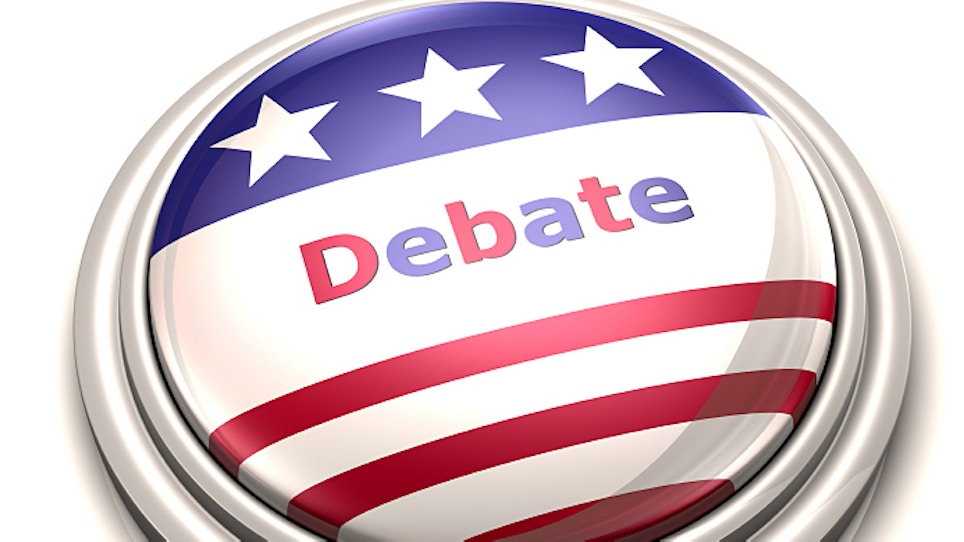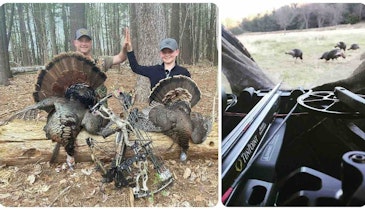Clinton, Sanders duke it out over voting records. Webb says Americans have a right to self-defense.
In their first debate on prime-time television, contenders for the Democratic nomination for president called for a host of new restrictions on firearms, including background checks on private sales, bans on so-called "assault weapons" and lawsuits against gun manufacturers.
Most of the candidates jockeyed for position on who was the strongest in restricted gun ownership, with former Maryland Gov. Martin O'Malley claiming his state's post-Newtown firearms restrictions "still respect the hunting traditions of people who live in our rural areas."
"We passed comprehensive gun safety legislation, not by looking at the pollings or looking at what the polls said. We actually did it," O'Malley said during the October 13 presidential debate sponsored by CNN. "And we did it by leading with principle, not by pandering to the NRA and backing down to the NRA."
The new Maryland laws require a license to own a handgun and ban the ownership of popular semi-automatic rifles.
Vermont Sen. Bernie Sanders came under attack for his more moderate gun control views, but pledged he is in favor of "assault weapons" bans and wants to "take a look at" legislation that shields firearms manufacturers from lawsuits by victims of crime where a gun was used.
"I think that a gun shop in the state of Vermont that sells legally a gun to somebody, and that somebody goes out and does something crazy, that that gun shop owner should be held responsible? I don't," Sanders said. "On the other hand, where you have manufacturers and where you have gun shops knowingly giving guns to criminals or aiding and abetting that, of course we should take action."
Leading Democratic candidate Hillary Rodham Clinton swung in on Sanders, accusing him of voting against the Brady Bill, which established the gun purchase background check system, and voting in favor of laws that protect gunmakers from lawsuits.
"It was pretty straightforward to me that he was going to give immunity to the only industry in America," Clinton said, referring to the special protections afforded to firearms manufacturers. "Everybody else has to be accountable, but not the gun manufacturers. And we need to stand up and say: Enough of that. We're not going to let it continue."
Former Rhode Island Sen. Lincoln Chafee recognized that guns were a tough issue for Democrats, pointing out that several legislators in Colorado were defeated after passing gun restrictions in that state. Like Sanders, Chafee called for "common ground" in the debate.
"When legislators step up to pass commonsense gun safety legislation, the gun lobby moves in and tells the people they're coming to take away your guns," Chafee said. "We're not coming to take away your guns, we believe in the Second Amendment. But let's find common ground here."
The only candidate to stand squarely apart from the other contenders was former Virginia Sen. Jim Webb, a Vietnam-era Marine officer and former Pentagon official. Webb supported the right of the individual to self-defense, mocking those who call for bans while standing under the protection of armed security.
"There are people at high levels in this government who have bodyguards 24 hours a day, seven days a week," Webb said. "The average American does not have that, and deserves the right to be able to protect their family."
The latest polls show Clinton with a commanding lead among Democratic primary voters with 45 percent, Sanders polling at 25 percent and the rest of the field — including Webb, Chafee and O'Malley — barely registering 1 percent.






